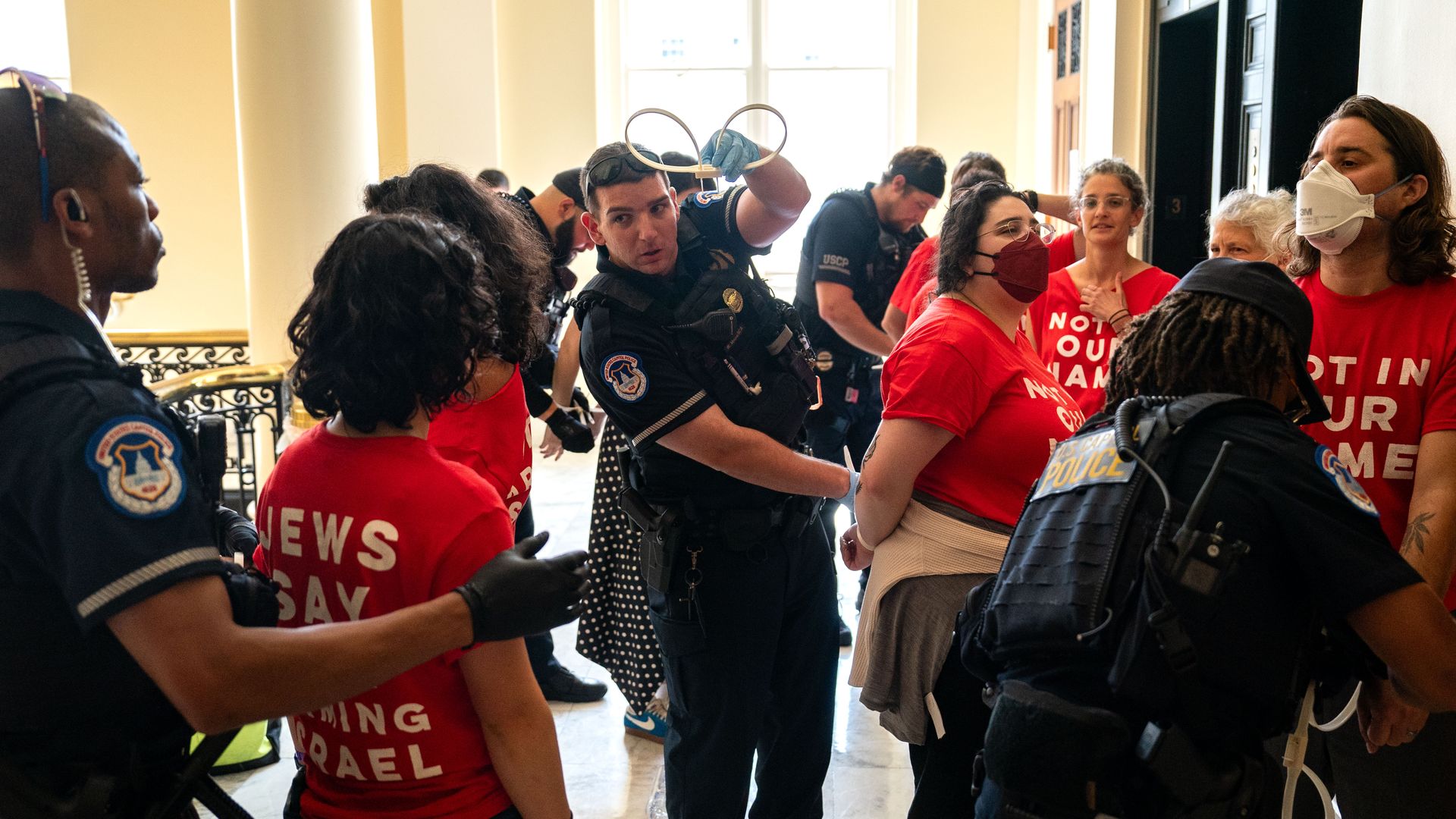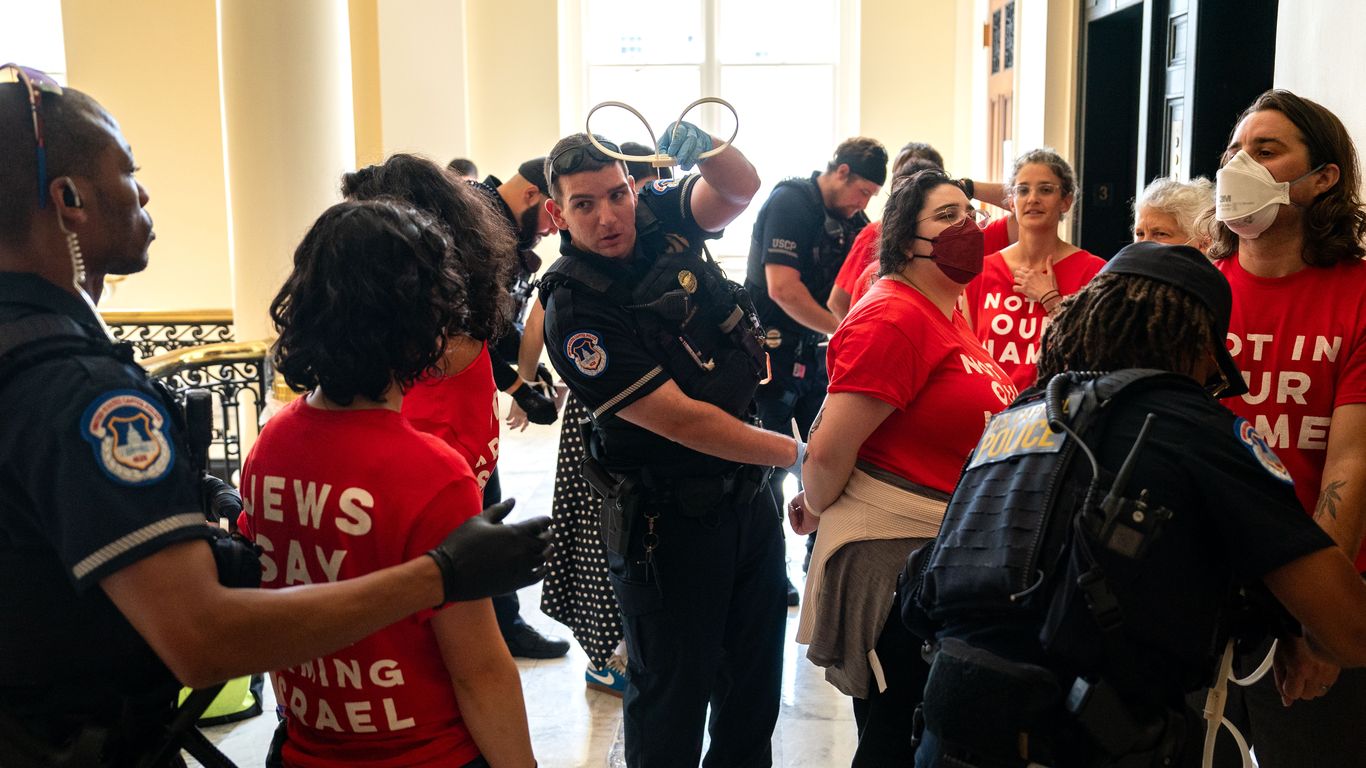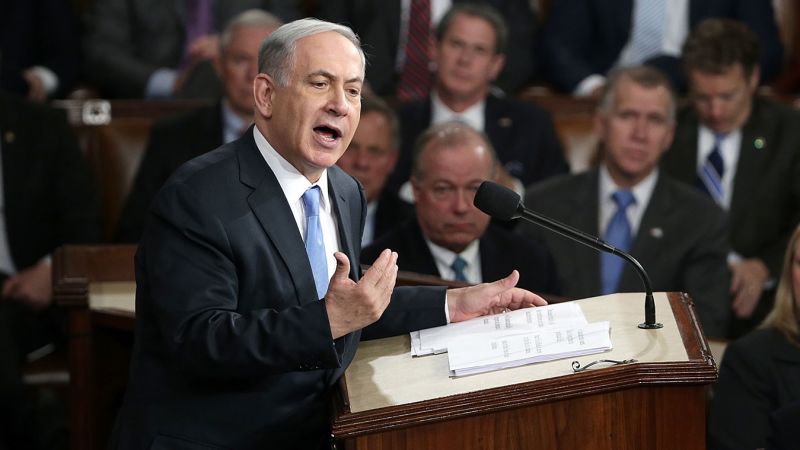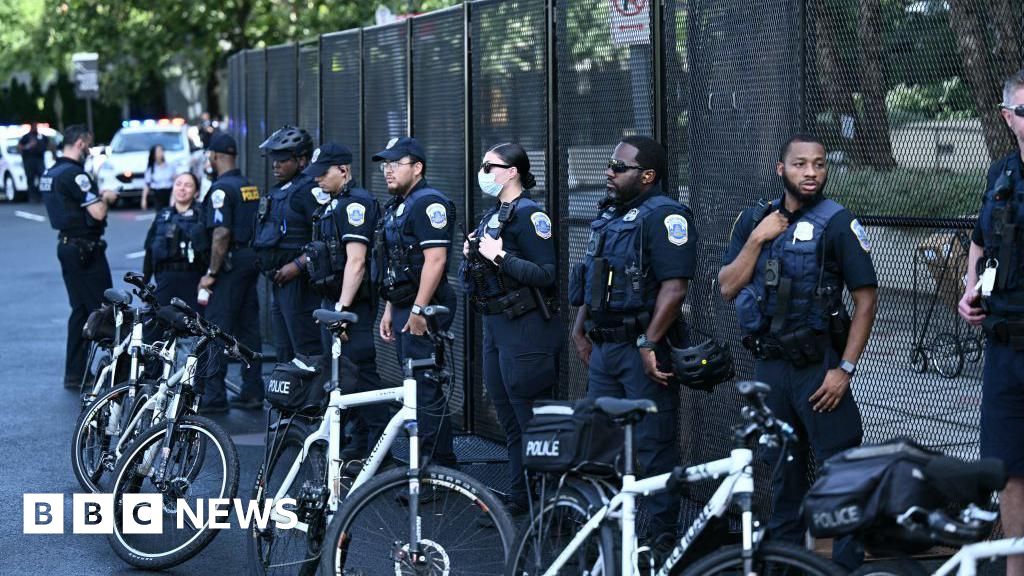
Israeli Prime Minister Benjamin Netanyahu is set to speak at a joint session of Congress on Wednesday, following a contentious visit to Washington D.C. that has been marked by protests and security concerns.
Netanyahu's trip to the U.S. capital has been met with opposition from Democratic lawmakers and pro-Palestinian activists, some of whom have announced plans to boycott his speech.
The Israeli leader's relationship with President Biden is also reportedly uneasy, as the U.S. administration faces pressure over its support for Israel's war in Gaza.
On Tuesday, a large group of pro-Palestinian protesters gathered in the Cannon Rotunda, prompting Rep. Dan Kildee's office to call the police after they became disruptive and attempted to force entry.
Capitol Police made scores of arrests for demonstrating in a restricted area.
The U.S. Campaign for Palestinian Rights has said 'tens of thousands' of people will gather at the Capitol on Wednesday, leading to concerns about safety and security.
In response, Capitol security officials and law enforcement are taking precautions, including erecting a fence, restricting entrances to the complex, and encouraging staffers to move through the building's tunnel system.
House Speaker Mike Johnson has also announced that additional police officers will be posted outside the Capitol and inside the House chamber.
Despite these measures, some lawmakers have expressed concerns about their personal safety. Rep. Max Miller, for example, has said he is not wearing his member pin because he doesn't want to be a target.
Netanyahu's speech is expected to focus on Israel's 'just war' in Gaza, but it remains to be seen how it will be received by Congress and the American public.
It is worth noting that Netanyahu has a history of confounding U.S. presidents, including President Biden and former President Trump.
Trump enjoyed a close relationship with Netanyahu during his time in office, but the Israeli leader angered him when he acknowledged Biden's electoral win over Trump.
Netanyahu's speech to Congress is certain to be a major event, but it is also likely to be met with controversy and opposition from those who disagree with his policies and actions.






